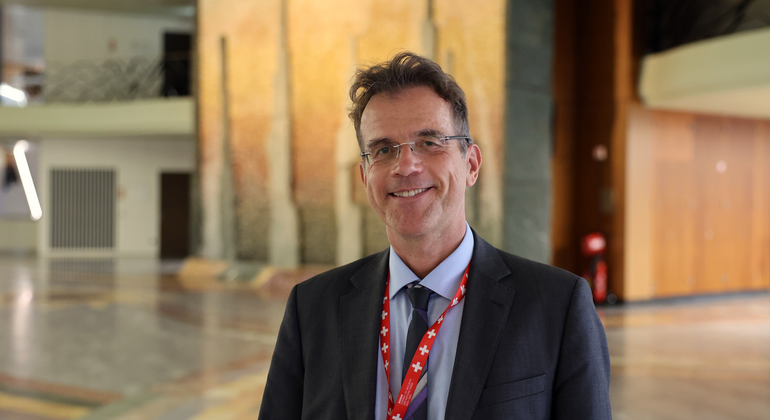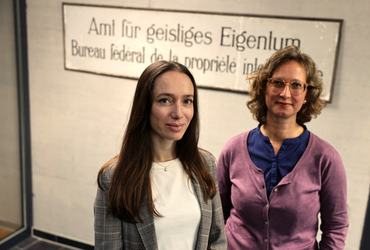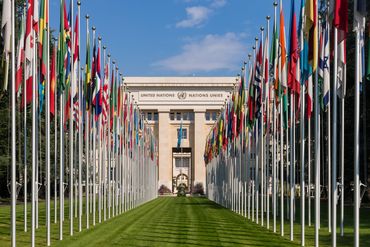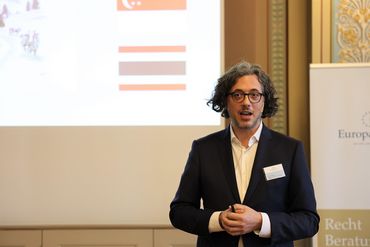International decisions about intellectual property (IP) are taken in Geneva. The legal expert Christoph Spennemann is at the heart of the action there. As the IPI’s attaché, he represents Switzerland’s IP interests. This requires not just strong negotiating skills but also a feel for other people.
The home of the World Intellectual Property Organization (WIPO) is not far from the United Nations building. Founded in 1967 as a specialised agency of the United Nations, WIPO is the centre for all international questions relating to intellectual property. This is where countries negotiate issues such as changes to patent practice, trade mark and design protection, and copyright.
Safeguarding the IPI’s interests
Such negotiations are important for Switzerland too. The IP (intellectual property) attaché Christoph Spennemann represents Switzerland’s interests at WIPO on behalf of the IPI, for example by ramping up collaboration on the topics of patent law and artificial intelligence. At the same time, Christoph Spennemann is an envoy at the Federal Department of Foreign Affairs’ (FDFA’s) Permanent Mission of Switzerland to the United Nations Office. “In political matters, such as the war in Ukraine, I act as the FDFA’s representative,” explains the legal expert.
His work also involves legal and administrative topics, such as WIPO’s budget and staff policy. “In negotiations with other member states, I represent the Swiss position, which is decided in advance in collaboration with the relevant specialists at the IPI,” reports the experienced negotiator. He explains that this close cooperation with IPI experts is also important for making statements on proposals or initiatives by other delegations: “We either support or reject them or suggest changes so that they’re acceptable for Switzerland and also reflect our interests.”
The consensus principle applies at WIPO
Numerous key agreements have been concluded at WIPO over the years, for example on simplifying patent filings or on protecting trade marks, designs and geographical indications at the international level. Most of what happens in Geneva comes about on the initiative of member states. For instance, member states may submit proposals relating to the preparation of international treaties. Negotiations then follow. Decisions at WIPO are basically taken by consensus, which means that all member states need to agree with a proposal. Hence, the lowest common denominator needs to be found that is acceptable to everyone.
"Consult the IPI experts first"
Christoph Spennemann presents Switzerland’s position in negotiations. “I consult the IPI’s experts in advance. We prepare the Swiss position together, and I then present it in the discussions in Geneva,” explains Spennemann. If the content is technical, IPI experts travel to Geneva as well in order to add their input to the negotiations and support Spennemann. Horizontal matters, including questions about the organisation’s budget, staff policy and other administrative topics, are primarily the responsibility of Spennemann as IP attaché.
The protection of products with a geographical indication
“A perennial debate is the question of how much financing should be made available to WIPO to protect geographical indications. Some WIPO member states aren’t interested in this topic, so they don’t want to provide additional funding. The issue concerns products that may only bear a specific geographical designation (e.g. Gruyère) if they are actually made in the specified region and manufactured in a certain way. Switzerland has a number of such products. Last year, Switzerland managed to set up an international coalition. Following intensive talks on the subject, this coalition helped us ultimately push through a higher budget for WIPO’s work on providing international protection for geographical indications.




